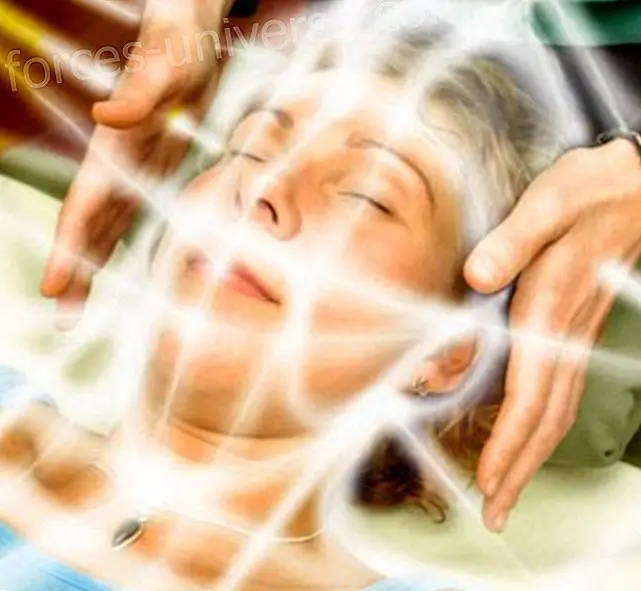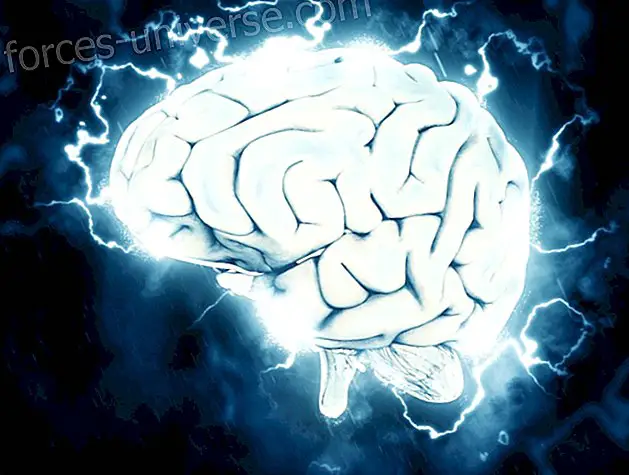
Throughout human development, a series of circumstances arise, sometimes painful, without which the development, well-being and maturity of the psyche would not happen. Those encompass numerous changes ranging from the prenatal stage to old age and death. Such transformations allow personal growth; integrating emotional, cognitive and sexual aspects.
What factors must be considered to understand human development?

Now, from birth, the human being is a fragile entity, and needs others to survive, being in its existential nature; a social entity So it will build its essence, within the parameters of its possible condition in the experience, starting with the primary institution: the family (which is the microsystem par excellence) and its relationship with the mother. Our mother is our first emotional contact.
Subsequently, the individual will interact with the other family members such as the father, his siblings and his friends (that is, with the mesosystem) and then with the community (exosystem) framed in the culture, which, in turn, conforms, the social nucleus that surrounds the individual (that is the macrosystem).
Therefore, to consider human development, it is necessary to take into account not only the biological bases of behavior, such as genetics, the particularities of the central nervous system, peripheral nervous system, neurons or neurotransmitters, but also social factors (such as the economy, politics and systems where the individual develops) and the psychic dimension: such as motivation, their ways of being or personality, emotions, axiology, roles, interests, intelligence, memory and worldview, both of the subject and of egregor.
What are the theories of human development?

Theories of development, mainly are the conceptual construct that reflect the essence of the quantitative and qualitative changes that have arisen in the existence of man, from conception until his death. Developmental psychologists have postulated theories to scientifically demonstrate how child development happens. The two basic issues in which the theorists differ are the following: 1) if the children are active or passive in their development, and 2) if the development is continuous or happens in stages.
Therefore, theories of human development and learning are grouped into three groups or families: 1.-stage theories (also known as organicist models), 2.-learning theories and motivation (or mechanists) and 3.- contextual theories. In the first group, those of psychodynamics ( Freud and Erikson ) stand out, and those of cognitive cutting (such as Piaget ), the second of Maslow and Rogers, and the latter, the system theory or ecological of Bronfenbrenner .
Likewise, all these theories serve to be able to organize the data of the experience, and to predict the possible phenomena of the development of the children and the adult. Being therefore its purpose, to obtain a fee that allows structuring and explaining quantitative changes and intensive degrees of human experience, in order to objectively address these changes and promote in society hypotheses for the benefit of the infant, young, adult and older adult within society.
For example, thanks to this sub-disciplines, the reason why the mother should breastfeed her children, the physiological and emotional benefits in the baby is explained. Similarly, the consequences of child abuse. Hence, another of the purposes of theories, is to raise awareness in sectors of society such as: The family, and education primarily.
How does the person begin to develop?

Of course, apart from the ontogenetic constitution, dad and mom (or equivalent authority figures in parenting) are the most important relationships for human development. Since they are not only the cornerstone for care and education in childhood; they also shape the healthy development of personality, character, self, and the formation of the super self, as well as the ways in which the individual relates to society. Of all the theories mentioned, for reasons of space, emphasis will be made roughly on that elaborated by Freud .
According to psychodynamic theory, the individual develops according to 5 stages where the drive and desire is poured through erogenous zones that promote self-discovery. The first goes from birth to two years of age and is called the oral stage, because the first contact with the world and its pleasure principle is through the mouth. Here comes the confluence; which is the notion of not being separated from the world, so the child experiences it through his mouth and his mother.
On the other hand is the anal stage (2 to 3 years). It is called that because the infant begins to control his sphincters, and with that he discovers his autonomy and is structuring his self, understanding that he is a being separated from the world. Subsequently you enter the phallic stage (3 to 6 years) where the pleasure principle is transferred to the genitals. Here is the famous Oedipus complex, (and also the castration complex -in the male- and the envy of the penis - in the female-) whose solution guarantees the formation of the personality and the super self. Later, there is the latency stage (7-12 years) where the erotic sexual impulses are sublimated to enter the last stage that is adolescence where erotic functions are reactivated with a sexual-genital character.
It is interesting to mention that for Freud's psychoanalysis; The most appropriate development of a person, is when the constellation and conflict of the Oedipus complex, is overcome or buried . If this triadic relationship is not balanced, the person can develop numerous neurotic conflicts. It is convenient to clarify that neurosis is a conflict between desire and a psychological defense against it.
In other words, neurosis can be expressed in the fact that the person cannot subordinate their wishes to reality, due to the fact that they have not identified with their same-sex parent and introjected their values, so there is inadequacy in the face of the reality being fixed to the mother. Giving as a result a personality with high defense mechanisms to not access their own desires or parts that seem unacceptable
theoretically a person who has not overcome the Oedipus complex, is a person with a dependent character and traits, with feelings of inferiority and guilt, with emotional immaturity, can also be a subject who cannot channel their desires to satisfy them in a consistent manner in his experience, so it will be difficult for him to have a partner and form his own family system independent of that of his parents, the object of his drive is diverted, resorting to mechanisms such as repression, projection, retroflexion, regression, fixation, displacement or Reactive training
What does the mother contribute to psychological human development?

The maternal figure is the first contact the subject has from the prenatal stage. From birth to the first two years, the baby knows the world through the suction that is based in the mouth as an erogenous zone; Breast milk being the first food, so that mom gives sustenance, satisfaction with work or service to life, prosperity and well-being.
If the baby is not treated properly, there is distrust, and rejection, which develops to the extent that it does not find answers to the physiological and emotional needs covered by the mother. From there, that a sense of abandonment, of emptiness, isolation, and loss of existential sense about oneself, low self-esteem, feeling of emotional rejection about their peers and about the meaning of life may arise.
In this sense, give the mother life; It forms the purest link of love, providing hope, gives the meaning of life, as well as the capacity for resilience in the face of the vicissitudes of existence. Systematically mom represents the left part of the body and archetypally it is symbolized by the moon, which is attributed to affection, emotional ties (especially with the couple, children and money), passivity and assent to life.
What does the father contribute to psychological human development?

If mom brings the primary care obtained since pregnancy, she unconsciously represents the house, the home, the prosperity, the abundance, and the hope. While dad represents "mom's way out, " that is, in human development, the psyche will look for dad's love that is in a certain way, externally. The energy of both parents is vital for all human development.
For what Dad represents the social world, and his energy brings security, concreteness, determination, prohibition of incest, success, character and independence. It systematically represents the right side of the body and the archetype of the sun, of moral consciousness. If the subject fails to identify with dad (either because he is an absent, present-absent figure, or he has behaved indifferently with his son) the person will grow up with feelings of insecurity and shyness, so it will be difficult to obtain Success in social and professional life.
Author: Kevin Samir Parra Rueda, editor in the great family of the hermandadblanca.org
More information in:
- Anaya, N. (2010). Dictionary of psychology. (2nd ed.). Bogotá, Colombia: Ecoe Editions.
- Freud, S. (1924). The burial of the Oedipus complex. Complete works, vol. XIX, Buenos Aires: Amorrortu, 1976.
- Hellinger, B. (2001). Orders of love . Barcelona, Spain: Herder.
- Papalia, D., Olds, S., and Feldman, R. (2009). Developmental psychology from childhood to adolescence . Mexico City: Mcgrawhill.






